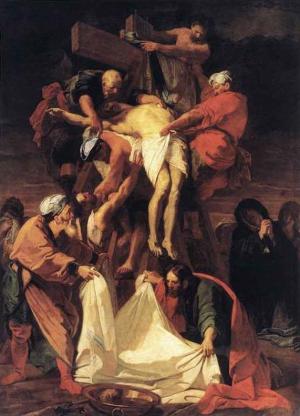| Author: | Lydia Maria Francis Child | ISBN: | 9781465519276 |
| Publisher: | Library of Alexandria | Publication: | March 8, 2015 |
| Imprint: | Language: | English |
| Author: | Lydia Maria Francis Child |
| ISBN: | 9781465519276 |
| Publisher: | Library of Alexandria |
| Publication: | March 8, 2015 |
| Imprint: | |
| Language: | English |
IGNATIUS SANCHO. This was the name of a remarkable African, who excited a good deal of interest in his day. His father and mOther were stolen from Africa and put on board a slave-ship in 1729, which was one hundred and thirty-six years ago. He was born during the passage, and when the vessel arrived at Carthagena, in South America, he was baptized by the name of Ignatius. His mOther died soon after, and his father, seeing no means of escape from slavery, killed himself in a fit of despair. The man who took possession of the little orphan, and claimed to be his master, carried him to England, and gave him to three unmarried sisters who lived at Greenwich. He was then about two years old, a bright, lively, funny little creature. As he grew older, he showed such an inquisitive mind, said so many droll things, and was so full of mischief, that the ladies named him Sancho, after a very comical character in a famous old Spanish novel. He was very eager in the pursuit of knowledge; but this commendable disposition was not approved by the ladies. They thought that all a black servant had occasion to know was how to obey orders, and that it was not necessary or proper for him to learn to read and write. But nature had given Ignatius a very lively mind, and a very susceptible heart, and neither of them could be kept quiet. He early plunged into love affairs, and was always overrunning with fun and frolic. Doubtless he was a great trial to the respectable maiden ladies, who were training him for a servant; and he, on his part, thought them very sour, severe, and disagreeable. Sometimes, when they were angry with him, they reminded him that he had been a slave, and threatened to send him into slavery again. This excited uneasiness in his mind, and kindled resentment. The Duke of Montagu lived in the neighborhood, and his attention was attracted by the bright, frank countenance of the black boy. He entered into conversation with him occasionally, and was so much struck by his intelligence and wit, that he told the ladies their servant was a remarkable lad, and that his earnest desire to improve his mind ought to be gratified. They persisted in their opinion that knowledge was a very improper and dangerous thing for a black servant. But the Duke introduced him to the Duchess, and they both encouraged him to learn to read and write. They lent him books, and were greatly entertained by his bright remarks concerning what he read. It was a great grief to Ignatius when the friendly Duke died. He besought the Duchess to receive him into her service, and she consented. He remained in her household as long as she lived. At her death, she left him an annuity of about one hundred and fifty dollars a year; and he had three hundred and fifty dollars, which he had laid up from his wages. He might have made this sum the foundation of a comfortable little property. But nature had made him very full of fun and frolic. He had such lively manners, and uttered so many pleasant jokes, that his company was much sought for. This proved a temptation too strong for him. He accepted invitations to go to taverns, where he gambled away his earnings. He had a great passion for going to the theatre; and his conduct with regard to women was far from being correct. But he soon saw the error of his ways, and resolved to reform. He went to the Chaplain of Montagu House, and begged to be taken into his service, where he remained several months. The descendants of his old friend, the Duke, encouraged him to persevere in his good resolutions; and when the young Duke saw that he continued sober and industrious, he took him into his employ. By the blessing of the Heavenly Father, another saving influence came to help him into the paths of virtue. He formed a serious attachment for a very worthy young woman from the West Indies, to whom he was soon after married. He remained in the employ of the Duke of Montagu until he was about forty-four years old. Frequent attacks of the gout, and clumsiness resulting from an hereditary tendency to corpulence, rendered him unfit to continue in the service to which he had so long been accustomed. His good friend and patron the Duke assisted him to establish a small shop for groceries. By economy and industry, he and his good wife managed to rear and educate well a numerous family of children
IGNATIUS SANCHO. This was the name of a remarkable African, who excited a good deal of interest in his day. His father and mOther were stolen from Africa and put on board a slave-ship in 1729, which was one hundred and thirty-six years ago. He was born during the passage, and when the vessel arrived at Carthagena, in South America, he was baptized by the name of Ignatius. His mOther died soon after, and his father, seeing no means of escape from slavery, killed himself in a fit of despair. The man who took possession of the little orphan, and claimed to be his master, carried him to England, and gave him to three unmarried sisters who lived at Greenwich. He was then about two years old, a bright, lively, funny little creature. As he grew older, he showed such an inquisitive mind, said so many droll things, and was so full of mischief, that the ladies named him Sancho, after a very comical character in a famous old Spanish novel. He was very eager in the pursuit of knowledge; but this commendable disposition was not approved by the ladies. They thought that all a black servant had occasion to know was how to obey orders, and that it was not necessary or proper for him to learn to read and write. But nature had given Ignatius a very lively mind, and a very susceptible heart, and neither of them could be kept quiet. He early plunged into love affairs, and was always overrunning with fun and frolic. Doubtless he was a great trial to the respectable maiden ladies, who were training him for a servant; and he, on his part, thought them very sour, severe, and disagreeable. Sometimes, when they were angry with him, they reminded him that he had been a slave, and threatened to send him into slavery again. This excited uneasiness in his mind, and kindled resentment. The Duke of Montagu lived in the neighborhood, and his attention was attracted by the bright, frank countenance of the black boy. He entered into conversation with him occasionally, and was so much struck by his intelligence and wit, that he told the ladies their servant was a remarkable lad, and that his earnest desire to improve his mind ought to be gratified. They persisted in their opinion that knowledge was a very improper and dangerous thing for a black servant. But the Duke introduced him to the Duchess, and they both encouraged him to learn to read and write. They lent him books, and were greatly entertained by his bright remarks concerning what he read. It was a great grief to Ignatius when the friendly Duke died. He besought the Duchess to receive him into her service, and she consented. He remained in her household as long as she lived. At her death, she left him an annuity of about one hundred and fifty dollars a year; and he had three hundred and fifty dollars, which he had laid up from his wages. He might have made this sum the foundation of a comfortable little property. But nature had made him very full of fun and frolic. He had such lively manners, and uttered so many pleasant jokes, that his company was much sought for. This proved a temptation too strong for him. He accepted invitations to go to taverns, where he gambled away his earnings. He had a great passion for going to the theatre; and his conduct with regard to women was far from being correct. But he soon saw the error of his ways, and resolved to reform. He went to the Chaplain of Montagu House, and begged to be taken into his service, where he remained several months. The descendants of his old friend, the Duke, encouraged him to persevere in his good resolutions; and when the young Duke saw that he continued sober and industrious, he took him into his employ. By the blessing of the Heavenly Father, another saving influence came to help him into the paths of virtue. He formed a serious attachment for a very worthy young woman from the West Indies, to whom he was soon after married. He remained in the employ of the Duke of Montagu until he was about forty-four years old. Frequent attacks of the gout, and clumsiness resulting from an hereditary tendency to corpulence, rendered him unfit to continue in the service to which he had so long been accustomed. His good friend and patron the Duke assisted him to establish a small shop for groceries. By economy and industry, he and his good wife managed to rear and educate well a numerous family of children















